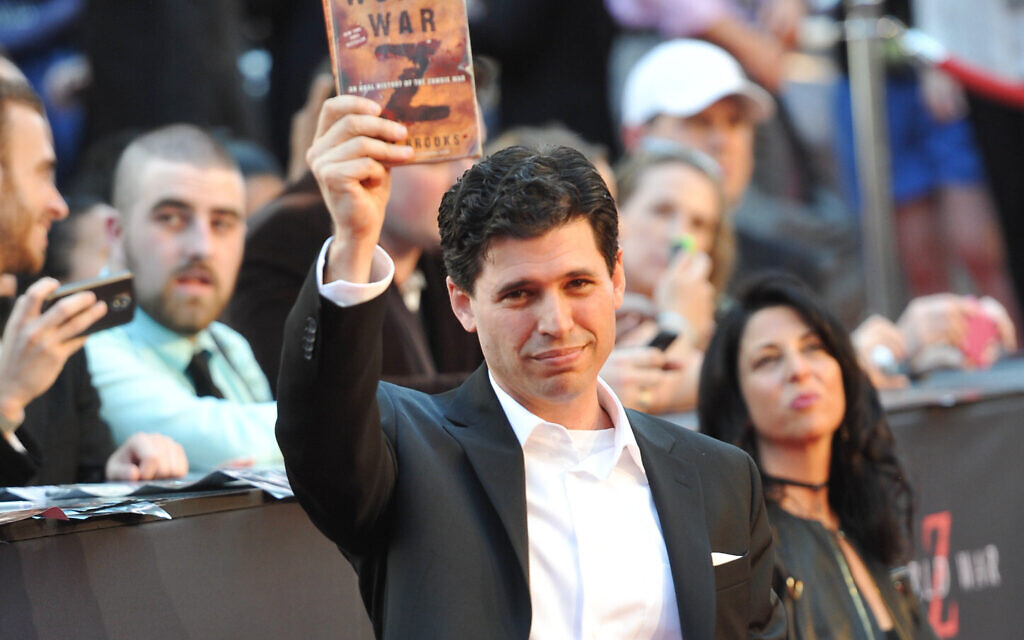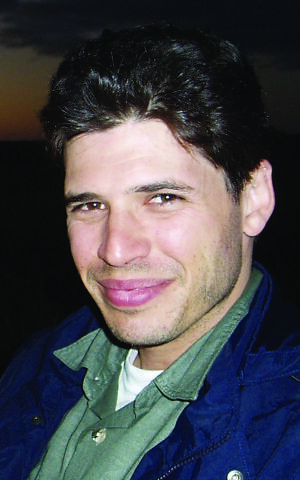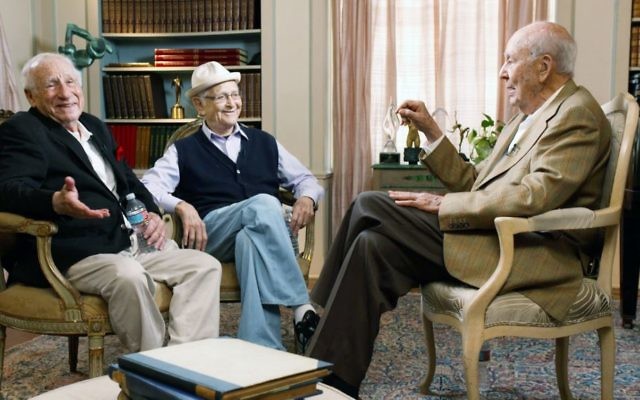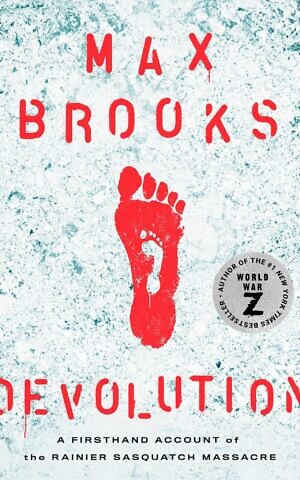Preparedness is no joke to comedy legend Mel Brooks’ son Max, a writer and US military advisor, who lauds Israel’s COVID response and says global pragmatism can beat crisis


The younger Brooks laments America’s performance during the coronavirus response. “After all that planning, all that preparing, all those years and dollars spent getting ready for just this day, our leadership appears to be having a nervous breakdown,” he wrote in an email interview with The Times of Israel.
His long-term prognosis is more hopeful. “We always tend to get caught unprepared,” he reflects. “What happened to Israel in the 1973 war happens to us in pretty much every war, and pandemic, and, well, everything.
“What’s so amazing about America, is our ability to recover. We always get hit hard, but we always get back up, always adapt, always do what we have to do, not just to survive but thrive.”
Brooks is doing his part. “My work at the Modern War Institute at West Point involves the study of non-military threats that could, some day, spill over into war,” he said. “Cyber security, food security, and, naturally, pandemics. The goal is to put these fires out before they get out of control.”
He has also addressed COVID-19 in a more personal way — a PSA with his father that’s gained 16 million views since its debut in March. It’s the featured post on Max Brooks’ Twitter account, accompanied by the hashtag #DontBeASpreader.
In the video, Max Brooks, 47, keeps his distance from his 93-year-old father. They speak to each other through the elder Brooks’ glass door. “If I get the coronavirus, I’ll probably be OK,” the younger Brooks explains to viewers, “but if I give it to him, he could give it to Carl Reiner, he could give it to Dick Van Dyke, and before I know it, I’ve wiped out a whole generation of comedic legends.”
“I certainly didn’t expect something like 15-plus million people to see it,” Max Brooks noted to The Times of Israel. “I just hope some of them listened to the message behind it.”
As he explained, “I just wanted to keep people at home. I wanted the message to be personal. I decided that the best way to do this was to tell the story of a son [me] not wanting to infect his father [my dad]. This is the best way to get any message across. Make it personal. Tell a story.”
Democracy is key to effective disaster response
Early in life, Brooks realized how a compelling personal story can illuminate a larger narrative. As a boy, he watched his mother play the role of Golda Meir on stage in New York.
“[My] mother explained to me about this little country that was attacked by all the other [countries] around it,” he remembered, “how it was fighting for its life, how that tiny country had to adapt and think on its feet and fight like a wolverine to keep itself from becoming extinct.” He described his mother as “an amazing storyteller.” He added, “She’s the reason I am who I am.”
Perhaps Bancroft’s best-known role was as Mrs. Robinson opposite Dustin Hoffman in “The Graduate.” Mel Brooks, meanwhile, is a master of comedy, as shown in films from “Blazing Saddles” to “Young Frankenstein.” Their son has gone on to follow his own storytelling path.

He rose to fame with “World War Z,” in which an infectious disease turns people into zombies.
“In order to write World War Z, I had to study how real nations prepare for crisis,” he said. “That crisis could be war, disease, or natural disasters. I found that different countries react in different ways. Some, like Israel, always have to be on their guard. Some, like the United States, can afford to be distracted.”
That’s because the US has what Brooks calls “awesome” real-life plans for disaster, the National Response Framework, which he learned about through research. These plans not only specify how different branches of government will run during an emergency, they also ensure that Americans will continue to enjoy democratic rights.
Democracy is key to effective disaster response, according to Brooks. “I found that countries with a dictatorship, like China, are in greater danger of collapse because they do not have a free press and free population that can stop their leaders from making horrible mistakes,” he said.
In Brooks’ ‘World War Z,’ pragmatic Israel saves herself

Another part of a successful disaster response is pragmatism, Brooks said, citing a conversation with an Israeli intelligence analyst who discussed lessons from the Yom Kippur War.
“I talk about Israel having to make some brutally hard choices to preserve its existence because that is the kind of thing Israel would do,” Brooks said. “You’re a practical people. You do what must be done to survive. You can’t afford laziness or arrogance, or rigid ideology. Survival is at stake. That is why, in ‘World War Z,’ Israel saves herself.”
In the 2013 film adaptation of his novel, that’s not quite what happens. The film stars Brad Pitt as UN veteran Gerry Lane, who gets called back into duty during a pandemic that is transforming people into zombies, who attack others and turn them into zombies as well. In Israel, a defensive wall initially keeps out the zombies and Gerry goes to Jerusalem to seek insights.
Unfortunately, a crowd singing “Od Yavo Shalom Aleinu” alerts the zombies to the humans on the other side of the wall. They swarm across in overwhelming numbers. Gerry must escape, aided by a resourceful Israeli “Segen,” or lieutenant (Daniella Kertesz). They get on a plane out of Jerusalem, although their troubles — and humanity’s — are not yet over.
As for when and how the COVID-19 crisis will end, Brooks said the degree of cooperation among the international community will be a key factor.
“No nation can survive this alone,” he said. “This is a world war, and we need to be moving forward as one world. The rich countries need to marshal all their resources to not only save their own people, but the people of countries who can’t afford medical care.
“We still have a chance to save so many lives, to come together and beat this microscopic enemy,” he said. “If we don’t, if we allow COVID-19 to hunt us country by country, city by city, tribe by tribe, we could lose millions. This crisis is only as bad as we allow it to be.”
As reported by The Times of Israel
